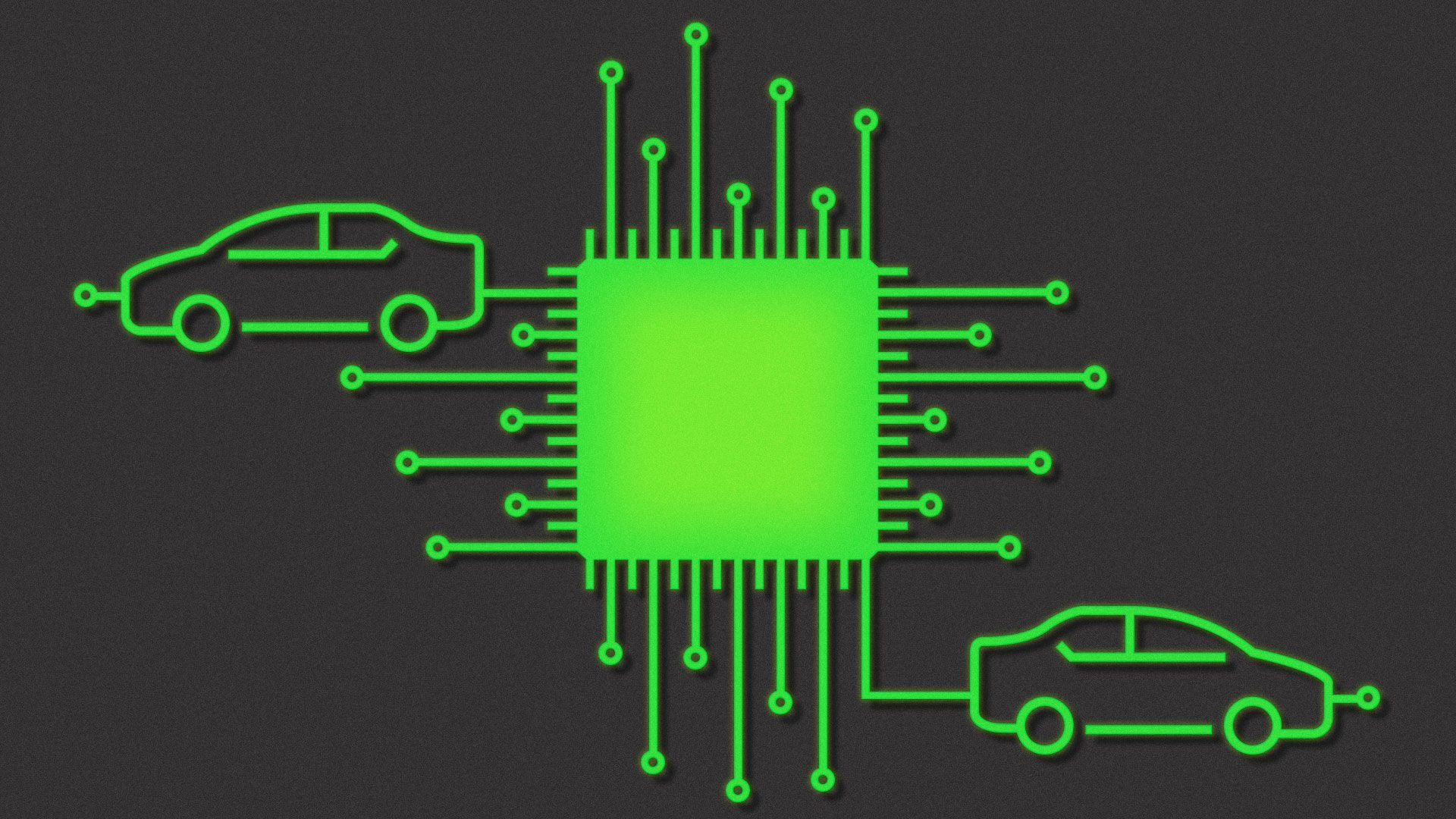| | | | | | | Presented By ProEdge, a PwC Product | | | | Axios Markets | | By Sam Ro ·Jul 16, 2021 | | Today's newsletter is 1,294 words, 5 minutes. 💰of the day: 74% of manufacturers surveyed by the Philly Fed said they increased wages over the past three months. 0% decreased wages. | | | | | | 1 big thing: Dethroning cash 💸 |  Data: Atlanta Fed, 2020 Diary of Consumer Payment Choice; Chart: Axios Visuals Cash is getting a bad reputation. It was already on the ropes but the pandemic accelerated a decline that's been underway, Axios' Kate Marino writes. Why it matters: Consumers used less cash in 2020. That along with a trend toward digital transactions in the smaller-dollar realm — the last stronghold of the legal cash economy — implies the cash in circulation is largely being used for under-the-table or illicit activities. - This could strengthen the rationale for governments to develop their own digital currencies, which would be trackable and taxable.
State of play: More consumers are going digital for obvious reasons — the convenience, the safety of not carrying around wads of cash, and after COVID, because of sanitary concerns, says Jody Jonsson, portfolio manager at Capital Group. - And while the entirety of cash payments is impossible to track, we can see that digital payments have grown faster than overall consumption over the past decade, Kenneth Rogoff, professor of economics at Harvard, tells Axios.
By the numbers: An Atlanta Fed survey shows cash payments in 2020 declined to 18.6% of transactions, from 25.8% in 2019. - The share of consumers who said they use cash at least once a month dropped to 74.7% in 2020, from 82.4% in 2019, according to another Atlanta Fed survey.
The intrigue: Demand for $100 bills illustrates the increasingly underground use of cash, says Rogoff, who in 2016 authored the definitive tome about the dark side of paper money. - The $100 bill accounts for more than 80% of U.S. bills in circulation, according to the Bank for International Settlements.
- Hundred dollar bills are rarely used in retail transactions and are more commonly used for paying for goods and services off the books.
- And cryptocurrencies, anonymous and thus useful in criminal activity, are "$100 bills on steroids," Rogoff says.
What to watch: In an effort to combat tax evasion and criminal activity, countries around the world are studying the development of central bank digital currencies (CBDCs), which are existing government-backed currencies transformed into computer code, as Axios' Hope King has reported. Rogoff wagers it may take as long as a decade for the U.S. to have some sort of widely available CBDC. Yes, but: Other regions are moving forward. - The European Central Bank on Wednesday announced it would begin developing a digital euro. And in April China became the first major world economy to actually create a digital currency.
The bottom line: The world isn't going to operate completely cashless any time soon. But the transition to less cash will undoubtedly continue. Go deeper |     | | | | | | 2. Catch up quick | | Intel is in talks to acquire GlobalFoundries for $30 billion. (WSJ) The FAA has ordered inspections on Boeing 737 planes for possible switch failures. (Reuters) Treasury Secretary Janet Yellen expects "several more months of rapid inflation." (CNBC) |     | | | | | | 3. Revisiting "transitory" |  | | | Fed chair Jerome Powell testifies. Photo: Win McNamee/Getty Images | | | | The way Fed chair Jerome Powell is talking about inflation seems to be evolving. Why it matters: The Fed has been employing a very stimulative monetary policy, which is helping boost job growth. But inflation has been running above its target. - Powell and his colleagues have argued for months that the forces currently boosting inflation have been "transitory."
Yes, but: As inflation rates rise by more than expected and for longer than expected, repeated references to "transitory" could hurt the Fed's credibility. - Even Powell himself on Thursday told the Senate Banking Committee that: "I think we're experiencing a big uptick in inflation. Bigger than many expected. Bigger than certainly, I expected."
The intrigue: Powell's most recent written statement referencing inflation made no reference to "transitory." He also never used the word during his lengthy Q&A with committee members. - The word "temporary" has come up, though.
- "The problem with 'transitory' is that it suggested a very short period of elevated inflation," SGH Macro Advisors economist Tim Duy wrote in a note to clients. "'Temporary' suggests the period of elevated inflation may be on the longer side."
The big picture: Semantics aside, Duy's bigger point is that the Fed is communicating that it's willing to tolerate inflation as long as unemployment remains high. - "Unless the Fed wants to revise the employment goal, it really has little choice but to lengthen the amount of time inflation can remain elevated without a policy response," Duy wrote.
Threat level: None of this is to say the Fed is turning a blind eye to inflation. Quite the opposite. - "We're trying to understand whether it's something that will pass through fairly quickly, or whether in fact, we need to act," Powell said of surprising inflation data.
- Bespoke Investment Group macro strategist George Pearkes tells Axios it's significant that Powell is essentially saying "we're trying to figure that out."
- "[If] they do decide 'we need to tamp down inflation' that's going to be a huge pivot and means we'll get [rate] hikes in 2022 for sure, with a taper starting in September and running much faster than it otherwise would."
The bottom line: The Fed is clearly willing to tolerate a lot of inflation if it means getting employment up. But there is a limit and not even the Fed seems to know where that is. |     | | | | | | A message from ProEdge, a PwC Product | | Align skills and culture with the changing nature of work | | |  | | | | Readying the enterprise for the future typically includes investment in new technologies. But it also requires ensuring your organization has the right skills to make the most of these technologies. Read the guide from ProEdge, a PwC Product. | | | | | | 4. "Very bad omen" for meme stocks |  Data: Google Trends; Chart: Axios Visuals Meme stocks are losing that meme stock energy. Why it matters: A handful of stocks, including GameStop and AMC Entertainment, attracted huge amounts of interest earlier this year thanks to online communities like Reddit. - This sparked a boom in new retail stock trading accounts on platforms like Robinhood, where traders trade commission-free.
- But in the past month, GameStop and AMC shares tumbled around 30% and 40%, respectively.
State of play: One factor that turns a stock into a meme stock is that it attracts the attention of new traders who are committed to trading with hoards of buyers. - These new traders tend to be novice traders, and they seek information like novices at anything else: they do Google searches for basic terms.
- However, Google Trends data shows searches for basic terms like "investing" and "buy stocks" have fallen to levels not seen in over a year.
What they're saying: DataTrek Research co-founder Nicholas Colas says this is a "very bad omen" for meme stocks. - "To our eyes, the data here says that the surge in US retail investor interest in investing is entirely over," Colas writes.
- "Every craze needs new adherents (i.e., not just the same crowd) to keep it relevant, and the Google chart shows those are in increasingly short supply."
The bottom line: Crazes never last, though there will continue to be weird reasons stocks may move up or down sharply over short periods of time. |     | | | | | | 5. Chips are coming |  | | | Illustration: Eniola Odetunde/Axios | | | | Automakers may soon get a lot more of the chips they need to get cars for sale. Why it matters: Winter weather, a fire and the COVID-19 pandemic have contributed to a shortage in chips that has stalled the production of new cars. Driving the news: Chip giant Taiwan Semiconductor reported its Q2 earnings on Thursday, and with it announced relief was coming for automakers in need of chips. - On a call with analysts, CEO C.C. Wei said its production of micro-controlling units for cars would be up 60% in 2021 compared to last year.
- "By taking such actions, we expect the automotive component shortage from semiconductors to be greatly reduced for TSMC customers starting this quarter," he said.
- Taiwan Semiconductor controls a little over half of the chip production market share as measured by dollar value.
Yes, but: Cars need as many as 1,400 different computer chips so it's too early to say the auto industry is in the clear. The bottom line: Supply chain issues are plaguing industries all over the world. So, it's good news to hear things are at least improving. |     | | | | | | A message from ProEdge, a PwC Product | | Align skills and culture with the changing nature of work | | |  | | | | Readying the enterprise for the future typically includes investment in new technologies. But it also requires ensuring your organization has the right skills to make the most of these technologies. Read the guide from ProEdge, a PwC Product. | | |  | | It'll help you deliver employee communications more effectively. | | | | | | Axios thanks our partners for supporting our newsletters. If you're interested in advertising, learn more here.
Sponsorship has no influence on editorial content. Axios, 3100 Clarendon Blvd, Suite 1300, Arlington VA 22201 | | | You received this email because you signed up for newsletters from Axios.
Change your preferences or unsubscribe here. | | | Was this email forwarded to you?
Sign up now to get Axios in your inbox. | | | | Follow Axios on social media:    | | | | | |









No comments:
Post a Comment